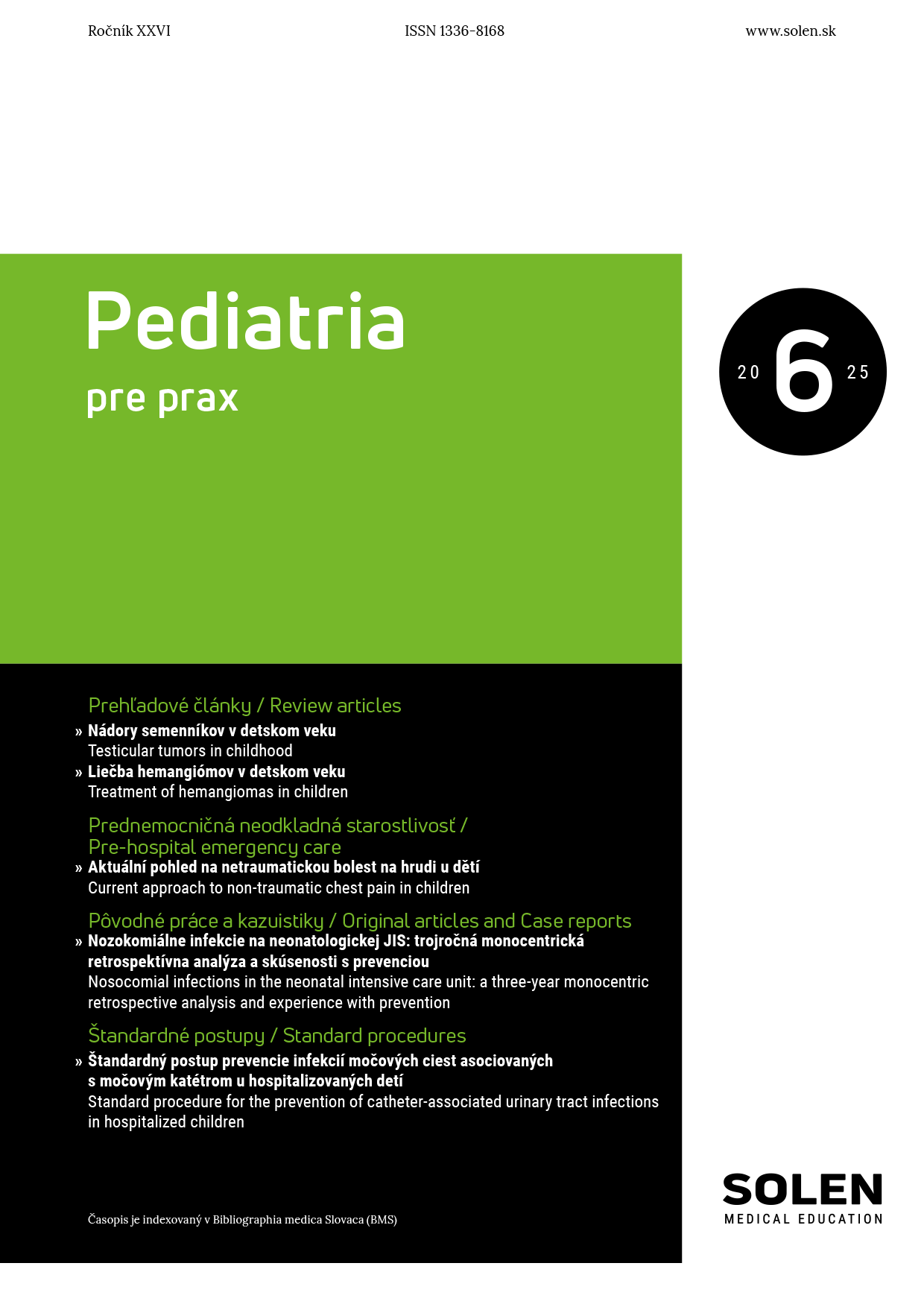Neurológia pre prax 1/2015
Treatment of advanced stage Parkinson's disease with intraduodenal levodopa infusions
L-DOPA is still considered to be the most effective drug in treating Parkinson's disease. However, its long-term administration is associated with the development of late motor complications that are thought to be due to non-physiological intermittent administration of L-DOPA. Elimination of pulsatile stimulation of dopamine receptors by adjusting a more stable concentration of dopaminergic agents in the plasma and in the striatal region can consequently lead to a significant reduction in these motor complications. We present a case report of a patient with advanced stage Parkinson's disease in whom the introduction of continuous intestinal L-DOPA infusions resulted in alleviating the symptoms of the disease and thus significantly improved the quality of life of the patient.
Keywords: Parkinson's disease, late motor complications, continuous intestinal L-DOPA infusion.

















